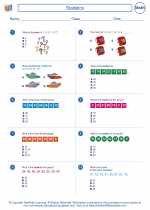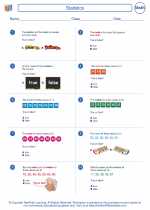Supply Chain Management
Supply Chain Management (SCM) is the management of the flow of goods and services, involving the movement and storage of raw materials, work-in-process inventory, and finished goods from point of origin to point of consumption. It also encompasses the coordination and collaboration with channel partners, which can include suppliers, intermediaries, third-party service providers, and customers.Key Components of Supply Chain Management
- Planning: This involves forecasting demand, setting inventory levels, and developing strategies for the coordination of resources.
- Sourcing: This involves identifying and selecting suppliers, negotiating contracts, and establishing relationships with vendors.
- Production: This involves the manufacturing and assembly of products, as well as managing the flow of goods within the production process.
- Inventory Management: This involves maintaining optimal inventory levels to meet customer demand while minimizing carrying costs.
- Logistics: This involves the transportation, warehousing, and distribution of goods, as well as the management of information and materials flow throughout the supply chain.
- Customer Service: This involves managing customer relationships and ensuring that their needs are met throughout the supply chain process.
Importance of Supply Chain Management
Effective supply chain management is critical for businesses to remain competitive and meet customer demands. It allows companies to streamline operations, reduce costs, improve efficiency, and enhance customer satisfaction. By optimizing the supply chain, organizations can minimize waste, reduce lead times, and respond more quickly to changes in the market.Key Concepts in Supply Chain Management
- Just-in-Time (JIT) Inventory: A system in which materials or products are delivered immediately before they are needed in the production process, reducing the need for holding excessive inventory.
- Vendor-Managed Inventory (VMI): An arrangement in which the supplier takes responsibility for managing the inventory levels of the customer, often using electronic data interchange (EDI) or other technology.
- Supply Chain Integration: The coordination and collaboration of all supply chain activities, from procurement to production to distribution, to achieve optimal performance and meet customer needs.
- Lean Manufacturing: A production practice focused on minimizing waste and maximizing efficiency, often achieved through the implementation of tools such as Kanban, 5S, and continuous improvement.
- RFID Technology: Radio-frequency identification technology that allows for the automatic identification and tracking of items throughout the supply chain, improving inventory management and visibility.
Study Guide for Supply Chain Management
To effectively study Supply Chain Management, it is important to understand the key components, importance, and concepts mentioned above. Here are some study tips:- Review and understand the key components of supply chain management, including planning, sourcing, production, inventory management, logistics, and customer service.
- Explore the importance of supply chain management in improving efficiency, reducing costs, and enhancing customer satisfaction.
- Learn about key concepts such as Just-in-Time inventory, Vendor-Managed Inventory, supply chain integration, lean manufacturing, and RFID technology, and their implications for supply chain operations.
- Consider real-world examples of successful supply chain management practices and their impact on businesses.
- Discuss the challenges and potential risks associated with supply chain management, such as disruptions, inventory management issues, and coordination with global partners.
◂Math Worksheets and Study Guides Sixth Grade. Statistics
Study Guide Statistics
Statistics  Worksheet/Answer key
Worksheet/Answer key Statistics
Statistics  Worksheet/Answer key
Worksheet/Answer key Statistics
Statistics  Worksheet/Answer key
Worksheet/Answer key Statistics
Statistics  Worksheet/Answer key
Worksheet/Answer key Statistics
Statistics  Worksheet/Answer key
Worksheet/Answer key Statistics
Statistics  Worksheet/Answer key
Worksheet/Answer key Statistics
Statistics 

 Worksheet/Answer key
Worksheet/Answer key
 Worksheet/Answer key
Worksheet/Answer key
 Worksheet/Answer key
Worksheet/Answer key
 Worksheet/Answer key
Worksheet/Answer key
 Worksheet/Answer key
Worksheet/Answer key
 Worksheet/Answer key
Worksheet/Answer key

The resources above cover the following skills:
Data Analysis and Probability (NCTM)
Select and use appropriate statistical methods to analyze data.
Find, use, and interpret measures of center and spread, including mean and interquartile range.